Notes on the Notes – December 4, 2016
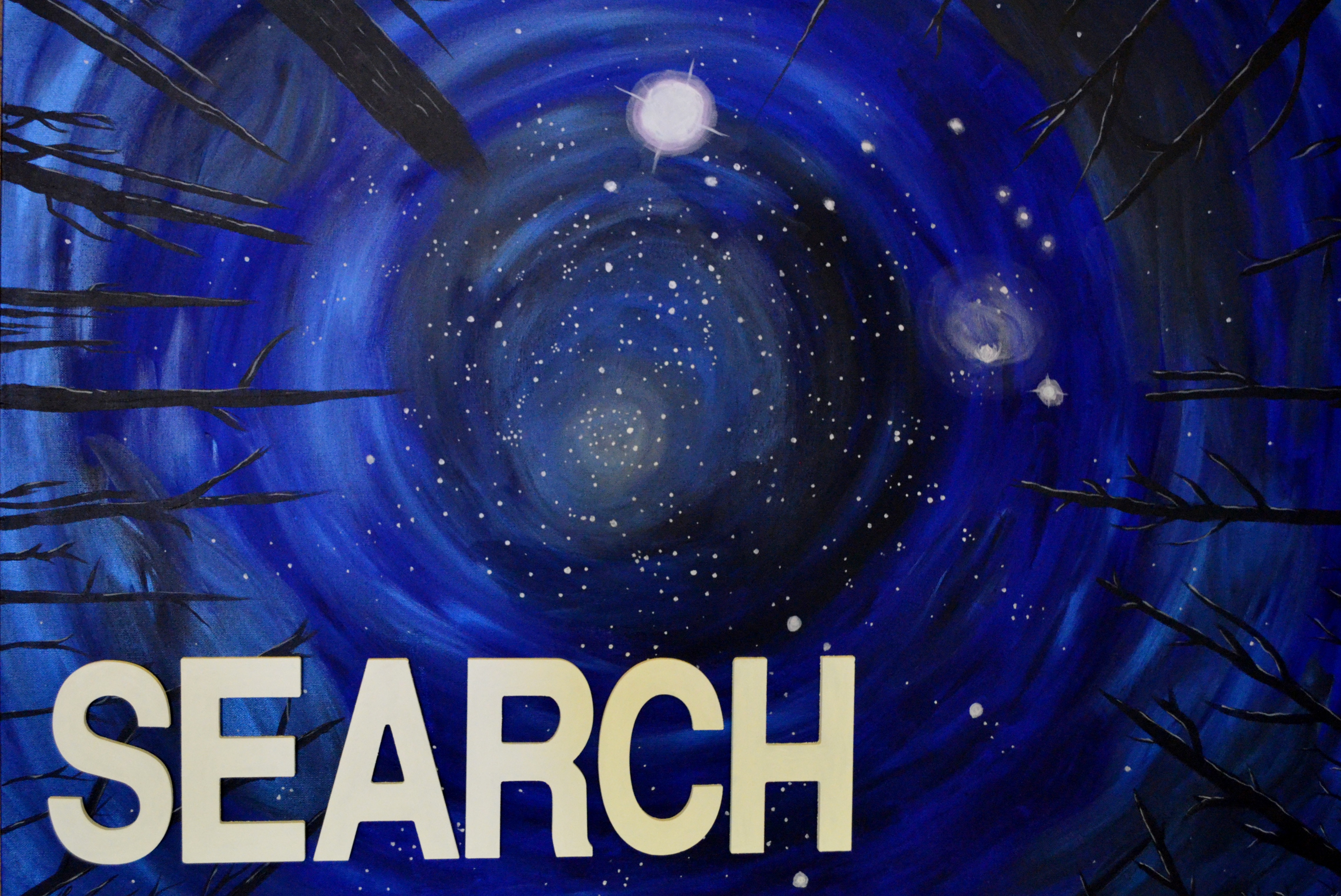
This week’s theme:
ADVENT 2 – Follow the Star
Do We Truly Search for God?
This week’s scripture readings:
Romans 15:4-13 Matthew 3:1-12
Pre-service carols starting at 10:20 a.m.:
“It Came Upon a Midnight Clear” (VU #44)
“It came upon the midnight clear, that glorious song of old, from angels bending near the earth to touch their harps of gold, “Peace on the earth, good will to men, from heaven’s all-gracious King!” The world in solemn stillness lay to hear the angels sing…”
‘It Came Upon a Midnight Clear’ is about the message of peace that the angels proclaimed on the first Christmas, when Jesus Christ was born. The song looks forward to a time when people will respond to the angels by living in peace with God and each other, and, in the last verse, likens doing so to offering the angels’ song back to them: “When peace shall over all the earth its ancient splendors fling, And all the world give back the song which now the angels sing.”
Edward Hamilton Sears, a Unitarian minister, wrote the text of this carol during a period of social and political turmoil in Europe and the United States. It was first published in Boston in 1849, but the message still rings true today. It was one of the first times that an American writer had penned words that would become a Christmas carol. The American composer Richard Storrs Willis, who had studied music with renowned composer Felix Mendelssohn in Germany, wrote a tune called ‘CAROL’ and adapted the words of Sears’ poem to that music about a decade after the poem was first published (1850).
See Celtic Woman perform the song at: https://www.youtube.com/watch?v=LYDa4Kht6Eo
Hear the carol sung by Julie Andrews at: https://www.youtube.com/watch?v=LwBajJ3ZFVo
Hear a contemporary version by Mercy Me at: https://www.youtube.com/watch?v=QVkEjepjsfo
“Away in a Manger” (VU #69)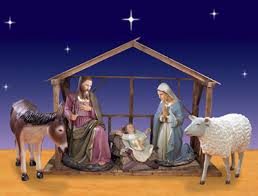
“Away in a manger, no crib for a bed,
The little Lord Jesus lay down his sweet head.
The stars in the bright sky look down where he lay,
The little Lord Jesus, asleep on the hay.
The cattle are lowing, the baby awakes,
But little Lord Jesus, no crying he makes.
I love you, Lord Jesus, look down from the sky
And stay by my side until morning is nigh.
Be near me, Lord Jesus, I ask you to stay
Close by me forever, and love me I pray.
Bless all the dear children in your tender care
And fit us for heaven to live with you there.“
This traditional children’s carol is an anonymous text which seems to have come from the German Lutheran community in Pennsylvania. The tune CRADLE SONG was published in an American collection of Christmas songs entitled Around the World with Christmas (1895).
Hear the song on harp at: https://www.youtube.com/watch?feature=player_embedded&v=rYc-XTYib4o
Hear the song on the piano at: https://www.youtube.com/watch?feature=player_embedded&v=vtW9TLjiPNs
“Away in a Manger” sung by Libera: https://youtu.be/yjke_DVaa_c
Hear Chris Tomlin’s “It’s Christmas”: https://www.youtube.com/watch?v=-2SgkfY7TnQ
This week’s music:
“Come, Thou Long-Expected Jesus” (VU #2)
Charles Wesley published this hymn in 1744. He intended it as a Christmas hymn, but its theme of awaiting the arrival of the long-expected redeemer makes it suitable for Advent as well. Like so many of Wesley’s texts, “Come, Thou Long-Expected Jesus” alludes to one or more Scripture passages in virtually every phrase. The double nature of Advent is reflected in this text, in which we remember Christ’s first coming even while praying for his return. Stanzas 1 and 2 recall Advent prophecies in the Old Testament; stanza 3 speaks of Christ’s birth and kingdom, and stanza 4 is a prayer for Christ’s rule in our hearts.
“Come, thou long-expected Jesus, born to set they people free: from our fears and sins release us, let us find our rest in thee.
Israel’s strength and consolation, hope of all the earth thou art, dear desire of every nation, joy of ever longing heart.
Born thy people to deliver; born a child and yet a king; born to reign in us for ever; now thy gracious kingdom bring.
By thine own eternal Spirit rule in all our hearts alone; by thine all-sufficient merit raise us to thy glorious throne.”
Hear an instrumental version of the song at: https://www.youtube.com/watch?feature=player_embedded&v=sg8OJf40LJE
Watch an up-tempo performance at: http://vimeo.com/54478055
“When a Star is Shining” (VU #97)
“When a Star is shining over eastern hills,
When the air is silent, and the clamour stills,
When the night is waiting, and the old hopes rise,
Then the time has ripened and the heart grows wise.
Where the world is waiting for an unknown day,
Where a voice forgotten cries, “Prepare the way!”
Where an earthly power makes the heart turn cold,
There the gifts are offered: incense, myrrh and gold.
Lead us on, O Daystar, in the the quiet night;
Guide us through the shadow with your gentle light;
Show us in a manger our redemption’s sign;
Bring us to a morning where the promise shines.”
Sylvia Dunstan, a United Church minister and hymn writer, wrote this hymn for the annual Epiphany service at Emmanuel College and St. Andrew’s United Church in Toronto, a service in which she frequently participated before her early death in 1993. The lyrics reference both John the Baptist and the three Kings from the east, as well as sharing the longing for a more peaceful, gentle world. The tune, KING’S WESTON, was composed by Ralph Vaughan Williams as a setting of “At the name of Jesus” in 1925.
“Carols for Seekers”
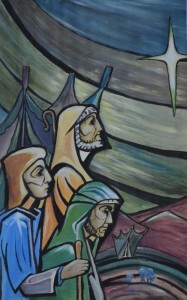 “Seekers, come to find the Promised One!
“Seekers, come to find the Promised One!
Behold, His star is shining bright with glory!
Seekers, come! To earth is born a Son!
Behold the wonders that the Lord has done!
See a sign blazing in the night.
It calls us all to begin a sacred journey.
Diamond bright in the eastern sky is falling on the one true Light!
Shine, holy light, with golden ray.
Show us the Morning Star.
Life’s darkest shadows drive away.
Show us the Morning Star…”
This week’s anthem has lyrics by Joseph M. Martin and uses the melodies from two carols: “March of the Kings” and “Coventry Carol.” “March of the Kings” is a traditional French melody from Provence from about the 13th century. It’s strong military march style was popular during the era of the Crusades. Composer George Bizet also used the melody for some incidental music for the play “The Girl from Arles.”
Hear this melody at: https://www.youtube.com/watch?v=Ibd1-ooK5as
“Coventry Carol” is an English carol dating from the 16th century. The original lyrics lament the babes slain by Herod the great after the birth of Jesus.
Hear the Westminster choir sing the carol at: https://www.youtube.com/watch?v=QIvH5GdY4JE
“There’s a Voice in the Wilderness” (VU #18)
“There’s a voice in the wilderness crying, a call from the ways untrod:
Prepare in the desert a highway, a highway for our God!
The valleys shall be exalted, the lofty hills brought low;
Make straight all the crooked places where God, our God, may go!
O Zion, that bringest good tidings, get thee up to the heights and sing!
Proclaim to a desolate people the coming of their King.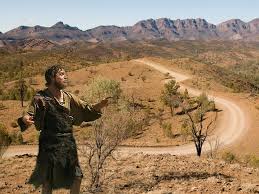
Like the flowers of the field they perish, like grass our works decay;
The power and pomp of nations shall pass, like a dream, away.
But the world of our God endureth, whose arm is ever strong;
God stands in the midst of nations, and soon will right the wrong.
God shall feed the flock like a shepherd, the lambs so gently hold;
To pastures of peace will lead them, and bring them safe to fold.”
This hymns reminds us of John the Baptist, who heralded the coming of the new Messiah. Often, on our journey, we need someone to point us in the right direction. This hymn commemorates the union in 1925 of the Canadian Congregational and Methodist churches with a large portion of the Canadian Presbyterian churches to form the United Church of Canada. The author, James Lewis Milligan, a journalist and lay Methodist preacher, was the director of public relations for the uniting churches between 1922 and 1925. Henry Hugh Bancroft, organist and choirmaster of All Saints’ Cathedral (Anglican) in Edmonton, composed the music.
Categories: Notes on the Notes
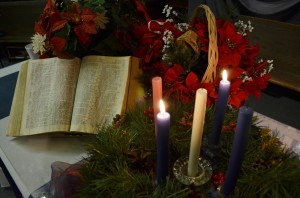
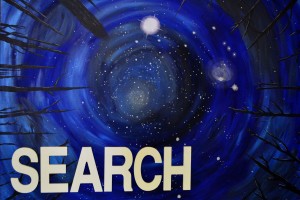

You must be logged in to post a comment.